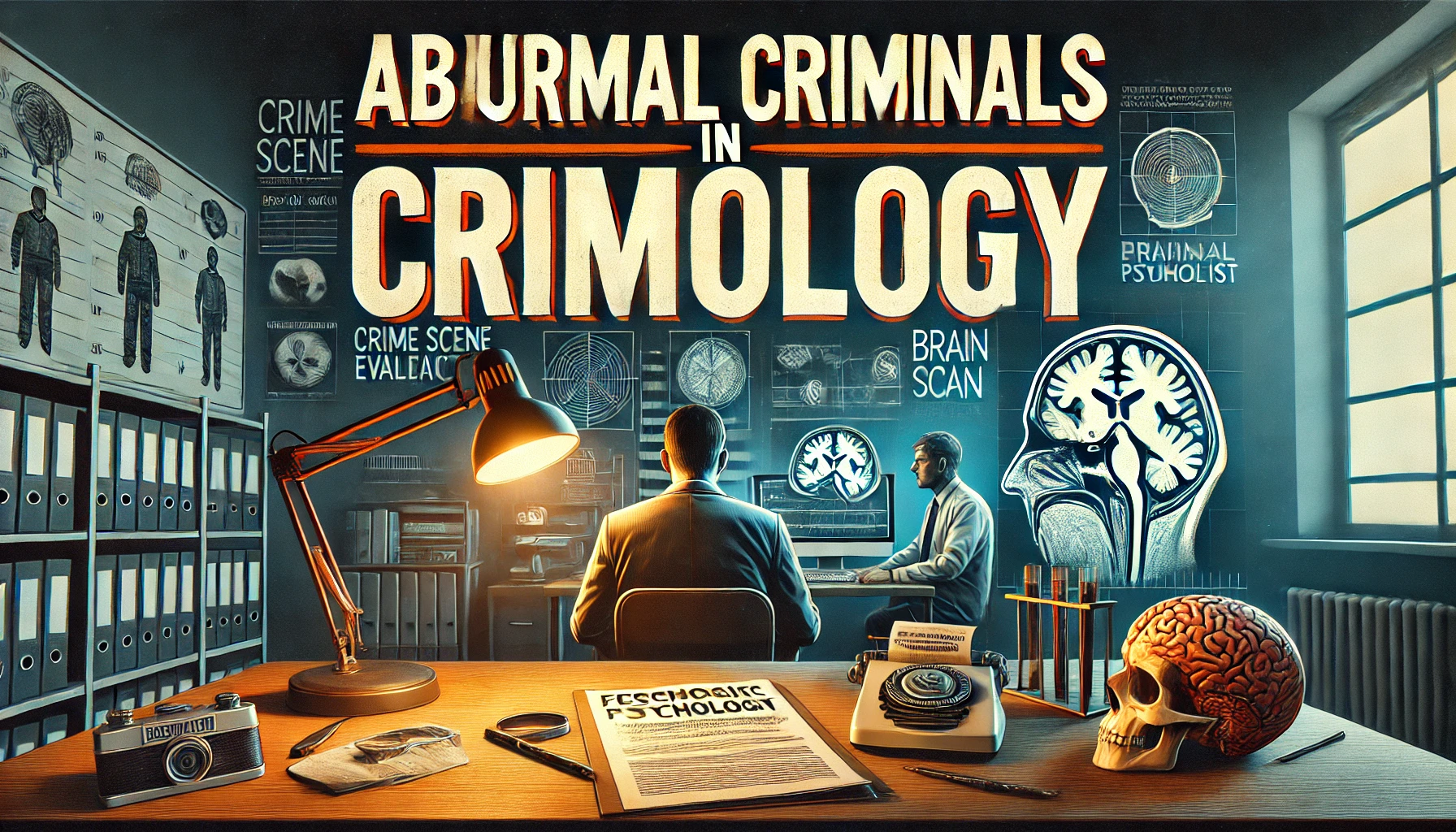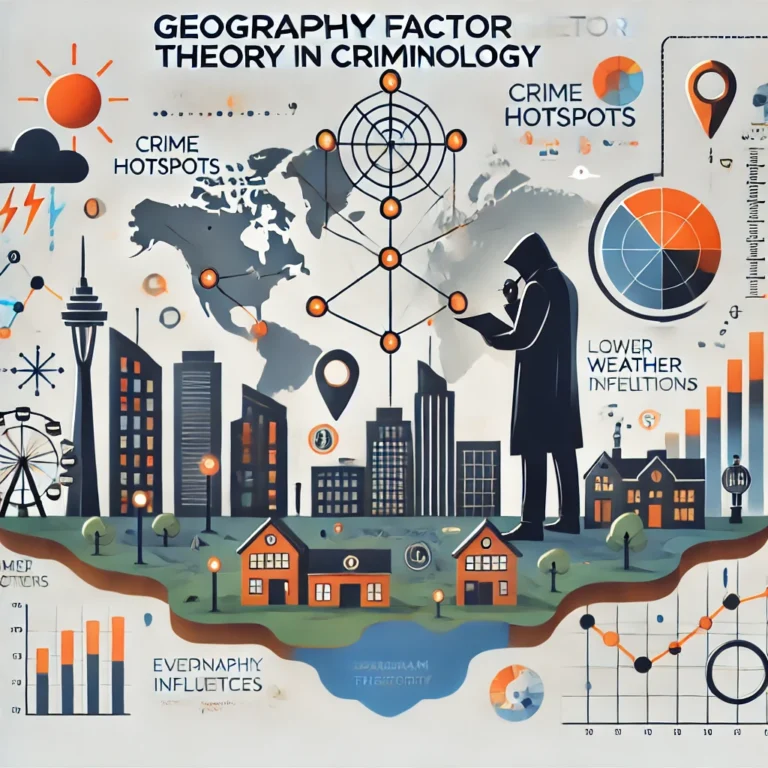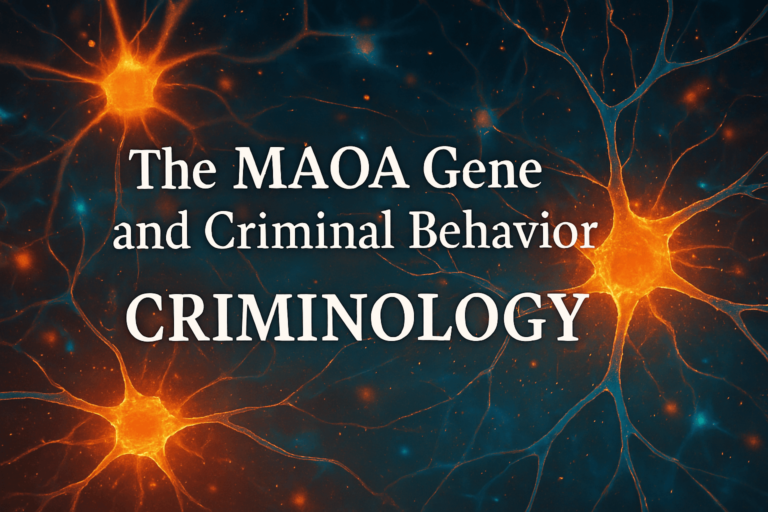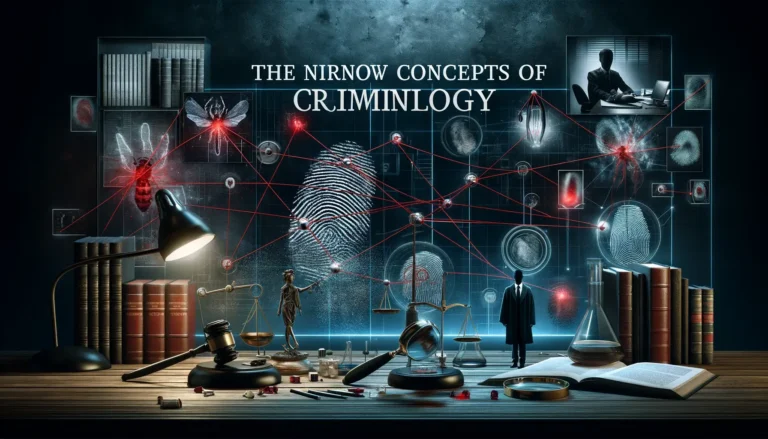Abnormal Criminals in Criminology: Comprehensive study
Introduction to Abnormal Criminals in Criminology
Criminology, as an academic discipline, seeks to understand the causes and consequences of criminal behavior. Within this field, the study of abnormal criminals plays a crucial role in identifying individuals whose crimes stem from psychological, biological, or sociological abnormalities. The concept of abnormal criminals in criminology is essential for developing effective legal and rehabilitative frameworks.
This article provides an in-depth exploration of abnormal criminals in criminology, examining their characteristics, theoretical foundations, and the impact of various criminological schools of thought on their classification. Additionally, we will analyze case studies, modern psychological assessments, and the role of forensic psychology in addressing criminal abnormalities.
Defining Abnormal Criminals in Criminology
Abnormal criminals in criminology refer to individuals who engage in criminal activities due to psychological disorders, genetic predispositions, or other atypical conditions. These individuals differ from conventional offenders, whose crimes may be influenced by socioeconomic factors or situational pressures.
Criminologists have long debated the parameters that define abnormal criminals, often distinguishing them based on specific behavioral patterns, neurobiological differences, and cognitive impairments. Some key criteria used to classify abnormal criminals include:
- Presence of mental illness (e.g., schizophrenia, psychopathy, bipolar disorder)
- History of neurological disorders or brain injuries
- Genetic predisposition to aggression or violence
- Behavioral disorders such as antisocial personality disorder (ASPD)
- Lack of remorse or empathy for victims
Theoretical Perspectives on Abnormal Criminals in Criminology
Biological Theories
Biological explanations for abnormal criminals in criminology suggest that genetic and neurobiological factors contribute to criminal tendencies. Notable theories include:
- Cesare Lombroso’s Atavistic Theory: Lombroso believed that criminals exhibited physical and psychological traits resembling those of primitive humans. He categorized criminals based on cranial measurements and anatomical irregularities.
- Genetic Influences: Studies on twins and families suggest that genetic factors may contribute to violent or antisocial behavior. The presence of the MAOA gene, often called the “warrior gene,” has been linked to increased aggression in some individuals.
- Neurological Deficiencies: Brain imaging studies indicate that abnormalities in the prefrontal cortex and amygdala can contribute to impulsivity and reduced empathy, which are common traits among abnormal criminals.
Psychological Theories
Psychological frameworks provide another lens for understanding abnormal criminals in criminology. These theories emphasize cognitive, emotional, and developmental factors that influence criminal behavior.
- Psychopathy and the Dark Triad: Abnormal criminals often exhibit traits associated with psychopathy, including manipulativeness, lack of empathy, and narcissism. The Dark Triad—comprising psychopathy, narcissism, and Machiavellianism—explains the interplay of these traits in criminal behavior.
- Freudian Psychoanalysis: Sigmund Freud suggested that unresolved conflicts in childhood could lead to deviant behavior. He emphasized the role of the id, ego, and superego in shaping an individual’s moral compass.
- Cognitive Distortions: Many abnormal criminals justify their actions through distorted thinking patterns, such as victim-blaming or minimizing the consequences of their crimes.
Sociological Theories
While biological and psychological factors are significant, sociological theories emphasize the role of environment and social structures in shaping abnormal criminal behavior.
- Strain Theory: Proposed by Robert Merton, strain theory suggests that societal pressures and lack of access to legitimate opportunities drive individuals toward criminality.
- Social Learning Theory: Albert Bandura’s theory highlights that individuals learn criminal behavior through observation and reinforcement from their environment.
- Labeling Theory: This theory posits that individuals may become abnormal criminals due to societal stigmatization and self-fulfilling prophecies.
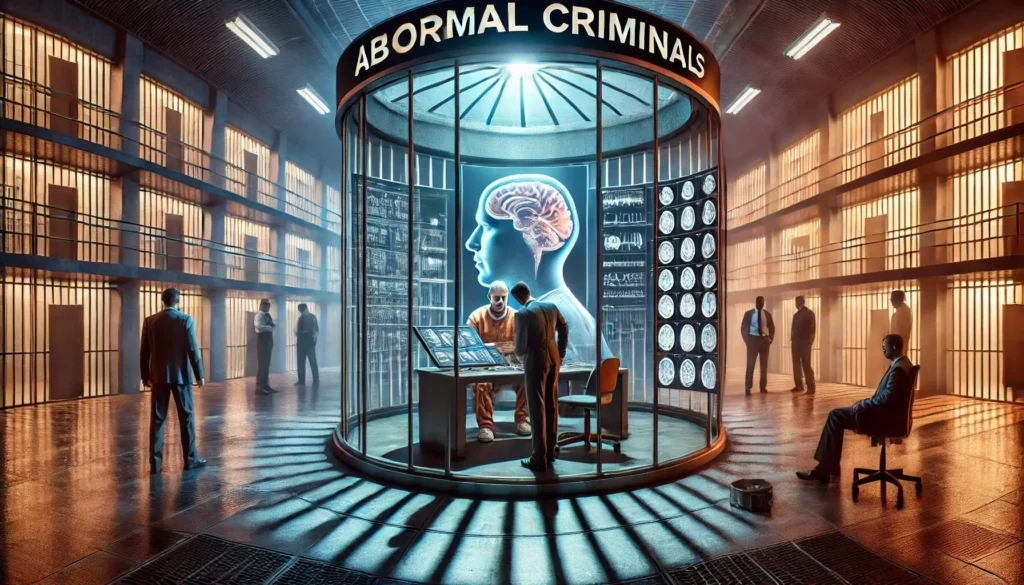
Case Studies of Abnormal Criminals in Criminology
Ted Bundy: A Case of Psychopathy
Ted Bundy, one of the most infamous serial killers in history, exemplifies abnormal criminals in criminology. His charming demeanor and lack of remorse highlight classic psychopathic traits. Bundy’s case has been extensively studied to understand the role of psychological disorders in violent crimes.
Richard Ramirez: The Role of Neurological and Environmental Factors
Richard Ramirez, known as the “Night Stalker,” displayed a combination of neurological impairments and environmental influences that contributed to his violent behavior. His case underscores the intersection of biological and sociological factors in criminal psychology.
Charles Manson: Influence of Cult Psychology
Manson’s ability to manipulate and control his followers reflects elements of abnormal criminality linked to sociopathy and charismatic influence. His case provides insights into the psychological mechanisms behind mass criminal enterprises.
The Role of Forensic Psychology in Addressing Abnormal Criminals
Forensic psychology plays a pivotal role in identifying and managing abnormal criminals in criminology. Experts in this field use various assessment tools to evaluate criminal responsibility, risk factors, and potential for rehabilitation. Some key methodologies include:
- Psychological Evaluations: Clinical interviews and standardized tests (e.g., Hare Psychopathy Checklist) help determine the presence of psychological disorders.
- Risk Assessment Tools: Actuarial models predict the likelihood of reoffending, aiding in parole decisions and sentencing.
- Treatment Approaches: Cognitive-behavioral therapy (CBT), pharmacological interventions, and rehabilitation programs aim to reduce criminal tendencies in abnormal offenders.
Modern Trends and Future Research in Abnormal Criminals in Criminology
Recent advancements in neuroscience, artificial intelligence, and behavioral genetics have opened new avenues for studying abnormal criminals. Emerging trends include:
- Neurocriminology: The study of brain structures and their correlation with criminal behavior.
- Predictive Analytics: AI-driven tools help identify potential criminal tendencies based on behavioral data.
- Ethical Considerations: The use of genetic profiling in criminal justice raises ethical concerns regarding privacy and discrimination.
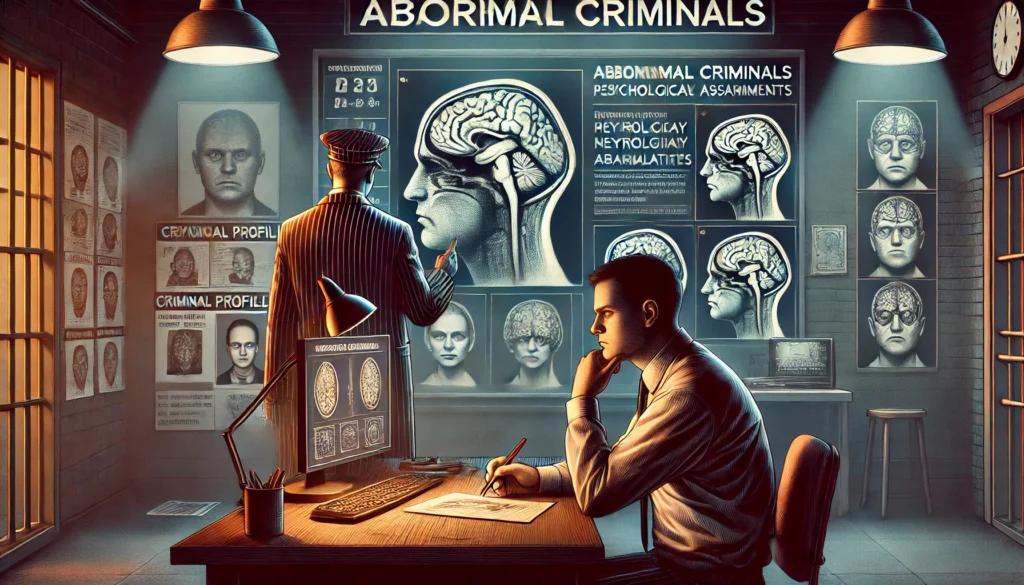
Conclusion
Abnormal criminals in criminology represent a complex intersection of biological, psychological, and sociological factors. Understanding their behavior requires a multidisciplinary approach that incorporates forensic psychology, neurocriminology, and sociological analysis. By advancing research in this field, criminologists and law enforcement professionals can develop more effective methods for preventing and rehabilitating abnormal offenders.
Addressing abnormal criminals in criminology is not merely an academic endeavor but a societal necessity. As science and technology continue to evolve, so too must our strategies for identifying, understanding, and managing individuals whose criminal behavior stems from underlying abnormalities.

